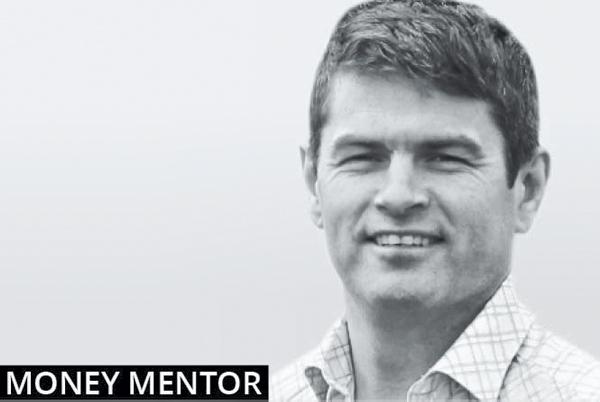Everyone knows to turn off the light bulb, or shop in Lidl or Aldi if they want to reduce their grocery bill. We already got rid of the landline and we changed our health insurance last year to reduce that bill. What we really need is to see how we can manage our way out of the debt we are in.”
Andrew went straight to the point when I visited him in Kerry. His wife was at work and their child was at school. He has completed three years of OP€RATION CASHFLOW and is aware of the basics of how to take control of your finances.
Anyone can do their net worth and measure it over time. You can record what you spend in the household budget and see what you earn by looking at your pay slips or at the farm budget. If you are earning more than you spend you can make progress.
If it is the other way around you have to make changes quickly. In Andrew’s case, the couple are just about making more than they are spending, but they face a number of changes in the future that could tilt that balance the other way. Andrew, like many other farmers, worked off farm in the construction sector in the past.
“They were good times and the money was rolling in. If the farm needed money it got it,” says Andrew. He had suckler cows and sheep running on the commonage behind the green fields on the farm.
Andrew and his wife Judith also borrowed money and bought two investment properties in the local village.
“We did them up and they are both rented out. The rent is covering the interest on the loan, but the banks are talking about moving to capital repayments as well,” he said. They have never missed a repayment, but unfortunately the houses are worth a lot less now than when they bought them.
“If we have to start paying back capital it will tip the balance of our income,” he says.
When the building work dried up, Andrew found there was little other work on offer in the area.
“I became a stay-at-home dad. It suits us in that I can do the farm work and pick up our child. We were forking out over €200 a week on childcare fees so it just made sense,” he says.
The move has seen him refocus on the farm and the potential income: “It’s only when the off farm work dried up that I realised how little the farm was making,” he told me. Andrew has some land in his name, but the majority of the farm is still in his mother’s name.
“She wanted me to put it in my name in the past, but I kept putting it off. I was very busy when I was working off farm so I never really thought about it,” he explains.
As well as the land, the entitlements are also owned by Andrew’s mother. He says she has not submitted tax accounts for a few years and is now concerned with tax liability.
His mother is getting older. She still lives in the farmhouse, but is no longer able to drive and has had some ill health.
“She wants to move to the local village, which I think would be a really good idea for her,” says Andrew.
Another issue is that if his mother had to go into a nursing home, the Fair Deal nursing scheme would take into account all assets in his mother’s name. The dwelling house, and potentially the farm, would be capped at three years.
“There is potential bills for tax and transferring the land, but I just want to get it all sorted out now,” says Andrew.
The long-term plan is to get the farm into shape and increase potential income. Looking at the figures, Andrew is more inclined to increase sheep numbers.
“We have only one share of the commonage, but there are other farmers with shares who don’t put up sheep anymore,” he says. This could open up opportunities in the future if Andrew wishes to expand his flock.
Over the next year, the aim is to set out a plan for the farm and identify what potential it has to generate profit. With a high percentage of commonage land, Andrew’s average Single Farm Payment is less than €100/ha. He will see this increase slowly to around €150/ha by 2019. His mother is not in REPS or AOES at present, but does get the Disadvantages Area Payment. This will continue under Pillar II, but Andrew will have to look to schemes such as GLAS to give him a bigger financial boost.
The first issue to tackle is the tax accounts. This is the second OP€RATION CASHFLOW family with problems in this area and it will be interesting to see the outcome.
The issue of the land transfer will be tackled, but also a plan will have to be developed for the banks, who are bound to put pressure on the family to start paying capital. It will be a busy year for Andrew to get his finances in order.
In brief
• Start with the basics of OP€RATION CASHFLOW.
• Get taxes in order.
• The land will be transferred into Andrew’s name.
• Develop a plan for farm management.






 This is a subscriber-only article
This is a subscriber-only article





SHARING OPTIONS: